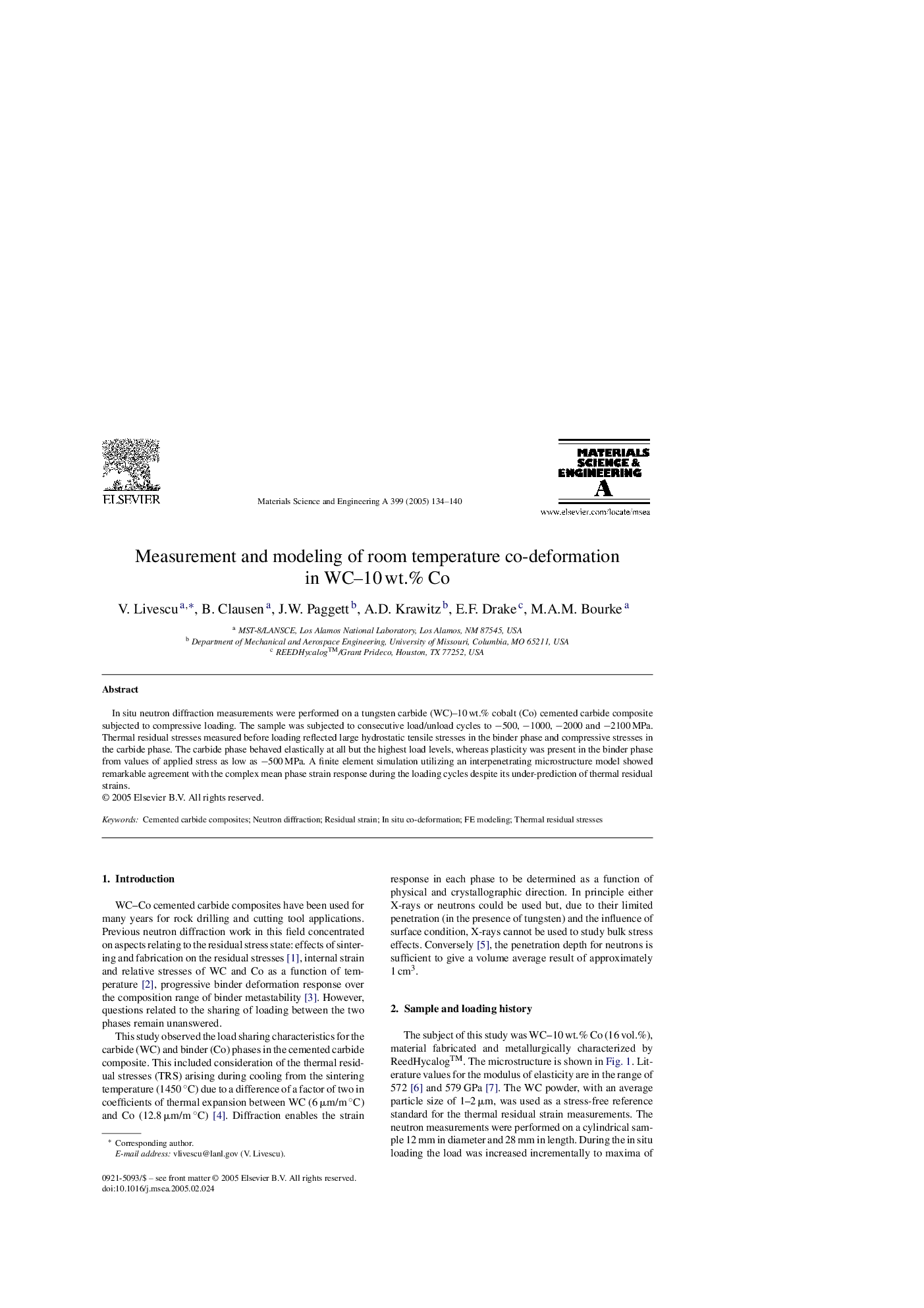| Article ID | Journal | Published Year | Pages | File Type |
|---|---|---|---|---|
| 9796182 | Materials Science and Engineering: A | 2005 | 7 Pages |
Abstract
In situ neutron diffraction measurements were performed on a tungsten carbide (WC)-10Â wt.% cobalt (Co) cemented carbide composite subjected to compressive loading. The sample was subjected to consecutive load/unload cycles to â500, â1000, â2000 and â2100Â MPa. Thermal residual stresses measured before loading reflected large hydrostatic tensile stresses in the binder phase and compressive stresses in the carbide phase. The carbide phase behaved elastically at all but the highest load levels, whereas plasticity was present in the binder phase from values of applied stress as low as â500Â MPa. A finite element simulation utilizing an interpenetrating microstructure model showed remarkable agreement with the complex mean phase strain response during the loading cycles despite its under-prediction of thermal residual strains.
Keywords
Related Topics
Physical Sciences and Engineering
Materials Science
Materials Science (General)
Authors
V. Livescu, B. Clausen, J.W. Paggett, A.D. Krawitz, E.F. Drake, M.A.M. Bourke,
